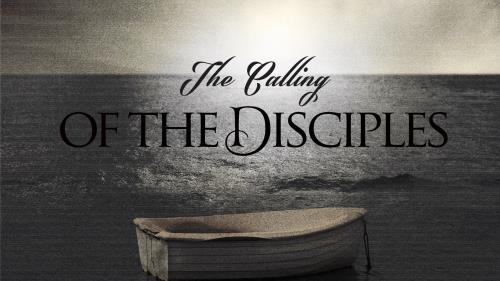-
Unlikely Vessels
Contributed by Jeremy Poling on Nov 28, 2017 (message contributor)
Summary: God often uses the least likely to succeed
Unlikely Vessels
Mat 1:1 The book of the generation of Jesus Christ, the son of David, the son of Abraham.
Mat 1:2 Abraham begat Isaac; and Isaac begat Jacob; and Jacob begat Judas and his brethren;
Mat 1:3 And Judas begat Phares and Zara of Thamar; and Phares begat Esrom; and Esrom begat Aram;
Mat 1:4 And Aram begat Aminadab; and Aminadab begat Naasson; and Naasson begat Salmon;
Mat 1:5 And Salmon begat Booz of Rachab; and Booz begat Obed of Ruth; and Obed begat Jesse;
Mat 1:6 And Jesse begat David the king; and David the king begat Solomon of her [that had been the wife] of Urias;
Mat 1:16 And Jacob begat Joseph the husband of Mary, of whom was born Jesus, who is called Christ.
I.
An Unlikely Hero
THE MARINE WHO FOUND TWO WTC SURVIVORS.
By Rebecca Liss, Slate.com
Tuesday, Sept. 10, 2002
Only 12 survivors were pulled from the rubble of the World Trade Center after the towers fell on Sept. 11, despite intense rescue efforts. Two of the last three to be located and saved were Port Authority police officers. They were not discovered by a heroic firefighter, or a rescue worker, or a cop. They were discovered by Dave Karnes.
Karnes hadn't been near the World Trade Center. He wasn't even in New York when the planes hit the towers. He was in Wilton, Conn., working in his job as a senior accountant with Deloitte Touche. When the second plane hit, Karnes told his colleagues, "We're at war." He had spent 23 years in the Marine Corps infantry and felt it was his duty to help. Karnes told his boss he might not see him for a while.
Then he went to get a haircut.
The small barbershop in Stamford, Conn., near his home, was deserted. "Give me a good Marine Corps squared-off haircut," he told the barber. When it was done, he drove home to put on his uniform. Karnes always kept two sets of Marine fatigues hanging in his closet, pressed and starched. "It's kind of weird to do, but it comes in handy," he says. Next Karnes stopped by the storage facility where he kept his equipment—he'd need rappelling gear, ropes, canteens of water, his Marine Corps K-Bar knife, and a flashlight, at least. Then he drove to church. He asked the pastor and parishioners to say a prayer that God would lead him to survivors. A devout Christian, Karnes often turned to God when faced with decisions.
Finally, Karnes lowered the convertible top on his Porsche. This would make it easier for the authorities to look in and see a Marine, he reasoned. If they could see who he was, he'd be able to zip past checkpoints and more easily gain access to the site. For Karnes, it was a "God thing" that he was in the Porsche—a Porsche 911—that day. He'd only purchased it a month earlier—it had been a stretch, financially. But he decided to buy it after his pastor suggested that he "pray on it." He had no choice but to take it that day because his Mercury was in the shop. Driving the Porsche at speeds of up to 120 miles per hour, he reached Manhattan—after stopping at McDonald's for a hamburger—in the late afternoon.
His plan worked. With the top off, the cops could see his pressed fatigues, his neatly cropped hair, and his gear up front. They waved him past the barricades. He arrived at the site—"the pile"—at about 5:30. Building 7 of the World Trade Center, a 47-story office structure adjacent to the fallen twin towers, had just dramatically collapsed. Rescue workers had been ordered off the pile—it was too unsafe to let them continue. Flames were bursting from a number of buildings, and the whole site was considered unstable. Standing on the edge of the burning pile, Karnes spotted … another Marine dressed in camouflage. His name was Sgt. Thomas. Karnes never learned his first name, and he's never come forward in the time since.
Together Karnes and Thomas walked around the pile looking for a point of entry farther from the burning buildings. They also wanted to move away from officials trying to keep rescue workers off the pile. Thick, black smoke blanketed the site. The two Marines couldn't see where to enter. But then "the smoke just opened up." The sun was setting and through the opening Karnes, for the first time, saw clearly the massive destruction. "I just said 'Oh, my God, it's totally gone.' " With the sudden parting of the smoke, Karnes and Thomas entered the pile. "We just disappeared into the smoke—and we ran."
They climbed over the tangled steel and began looking into voids. They saw no one else searching the pile—the rescue workers having obeyed the order to leave the area. "United States Marines," Karnes began shouting. "If you can hear us, yell or tap!"

 Sermon Central
Sermon Central



